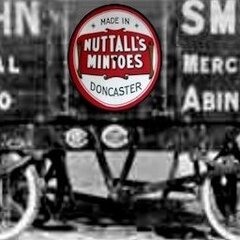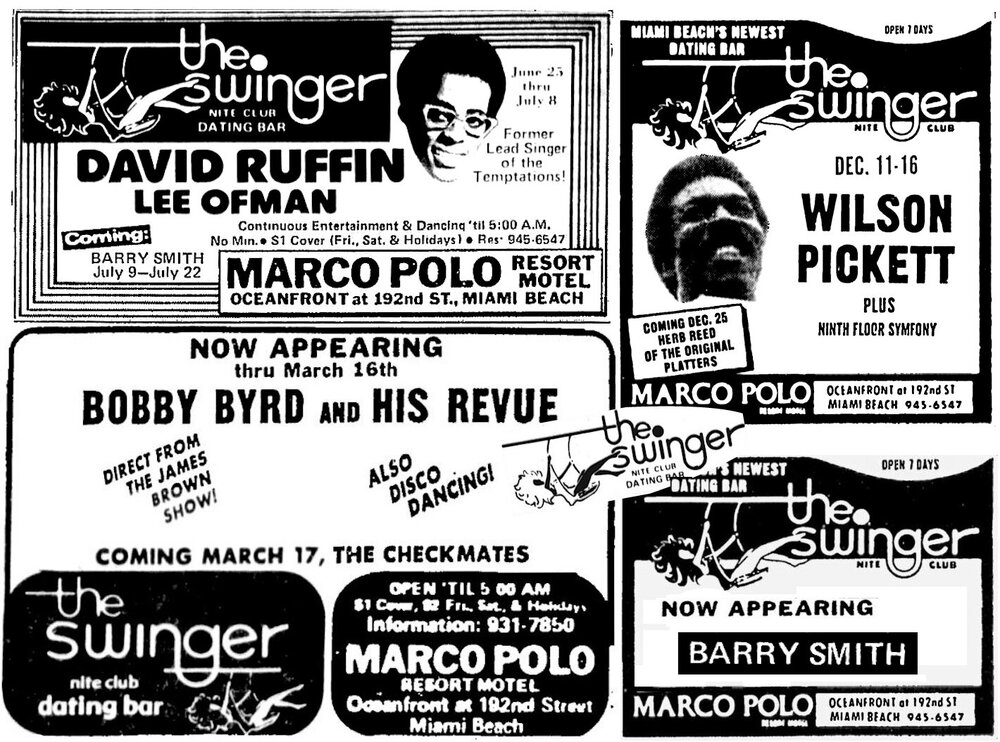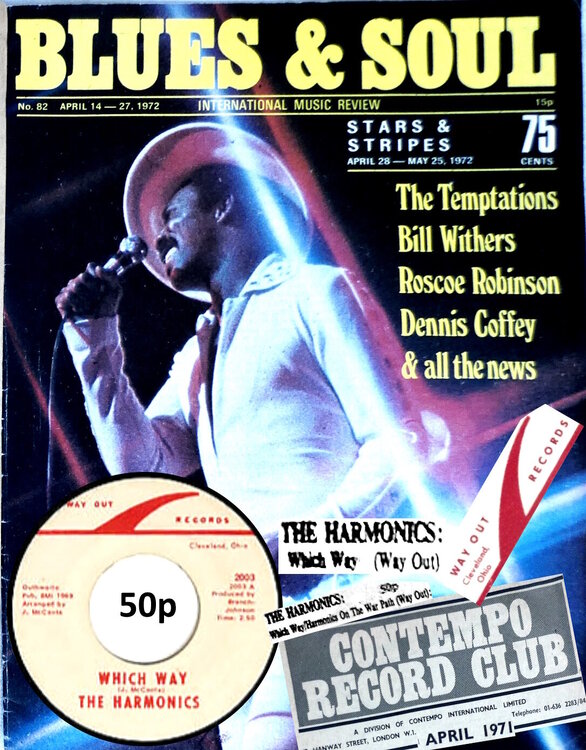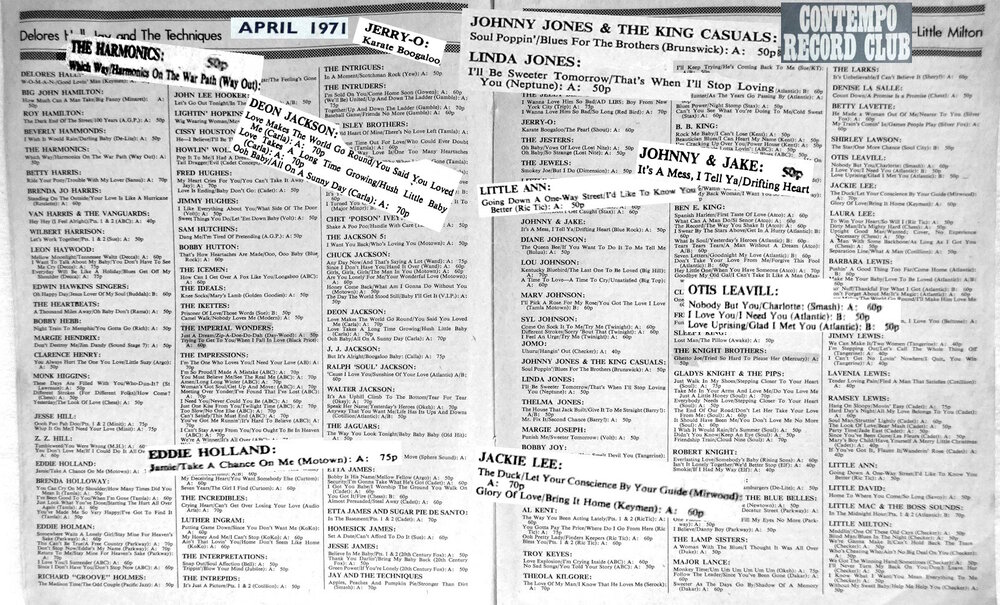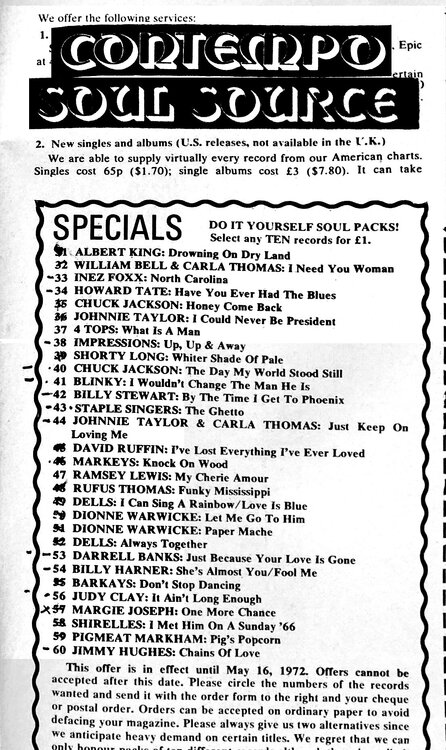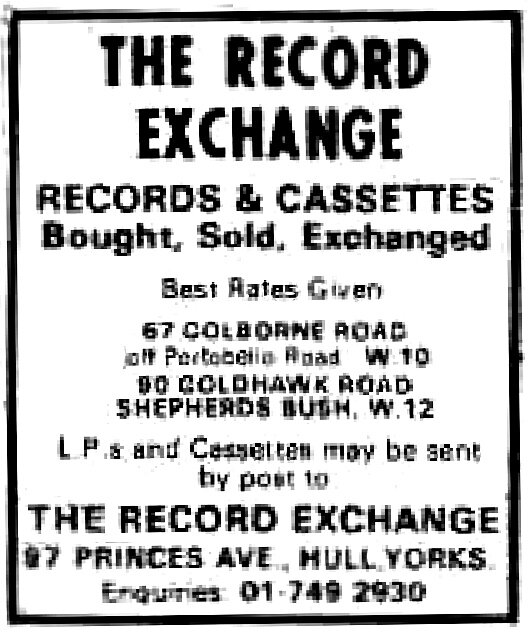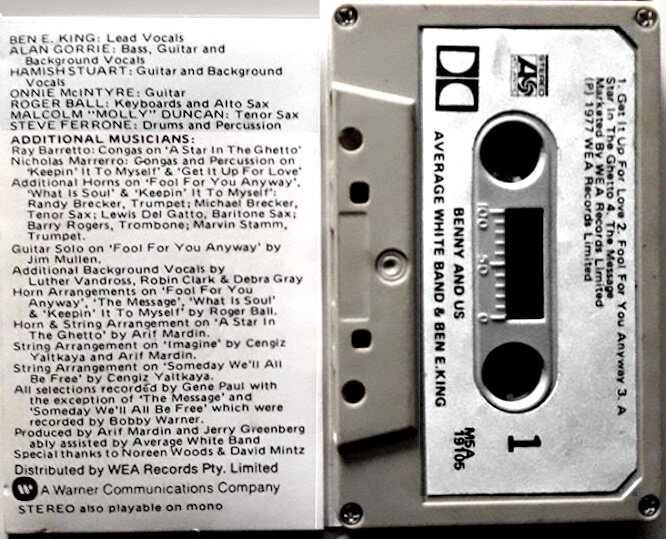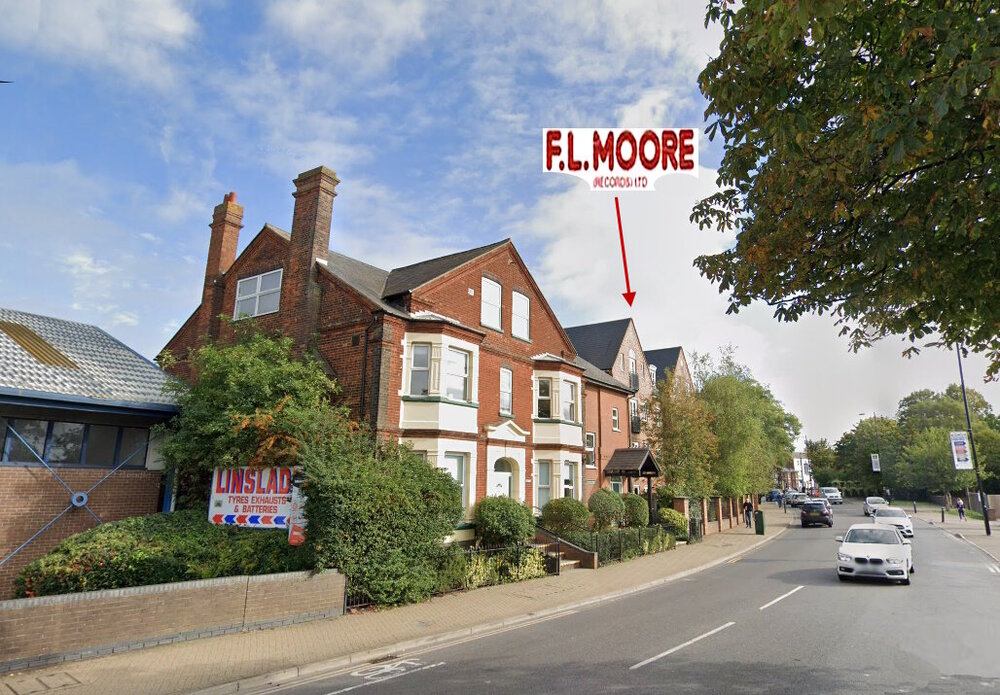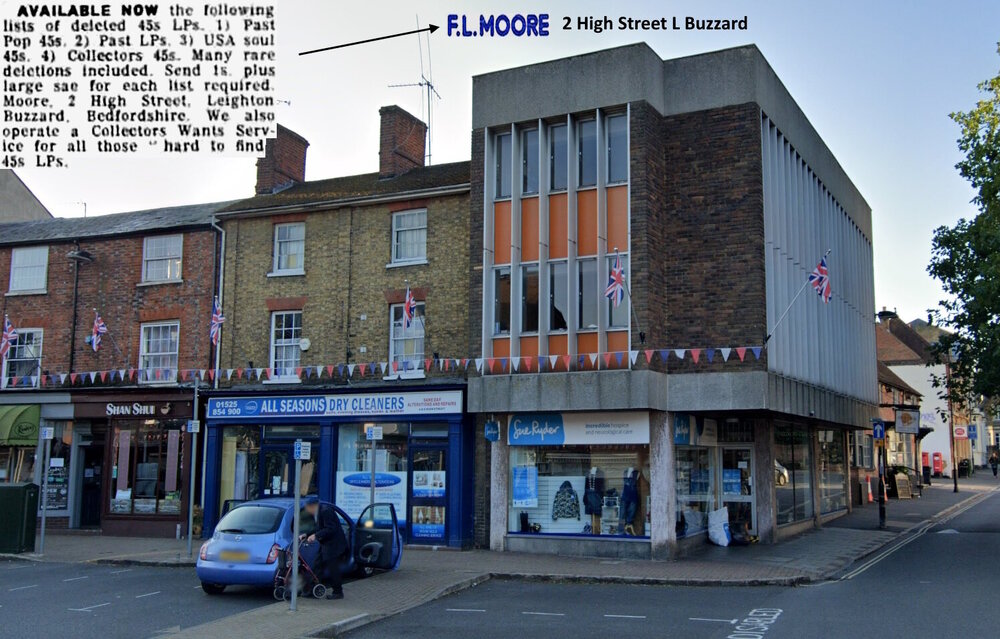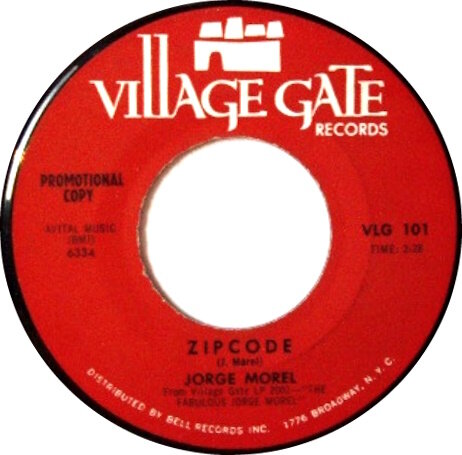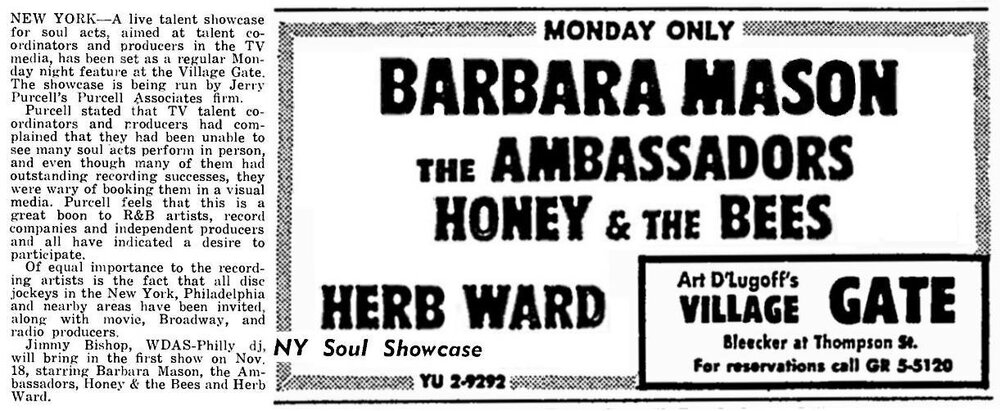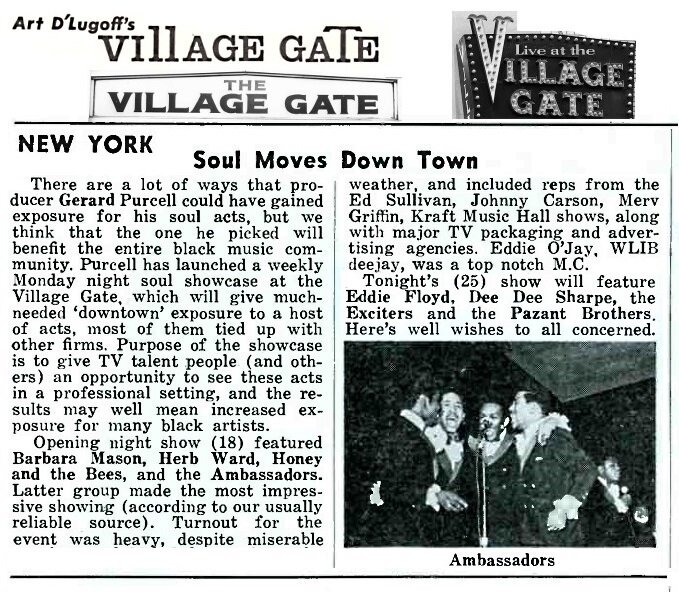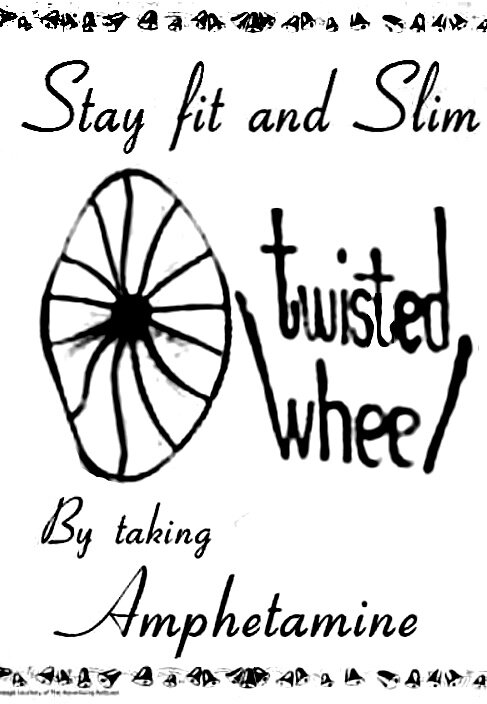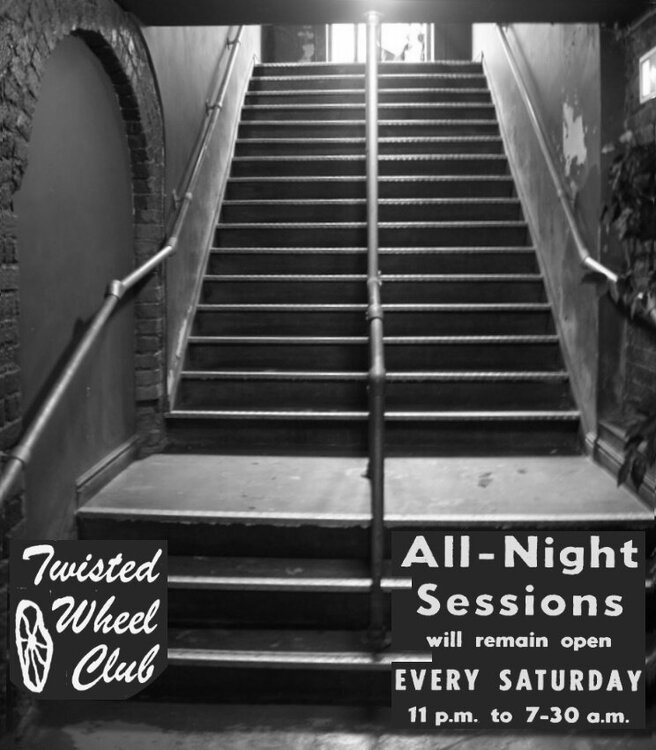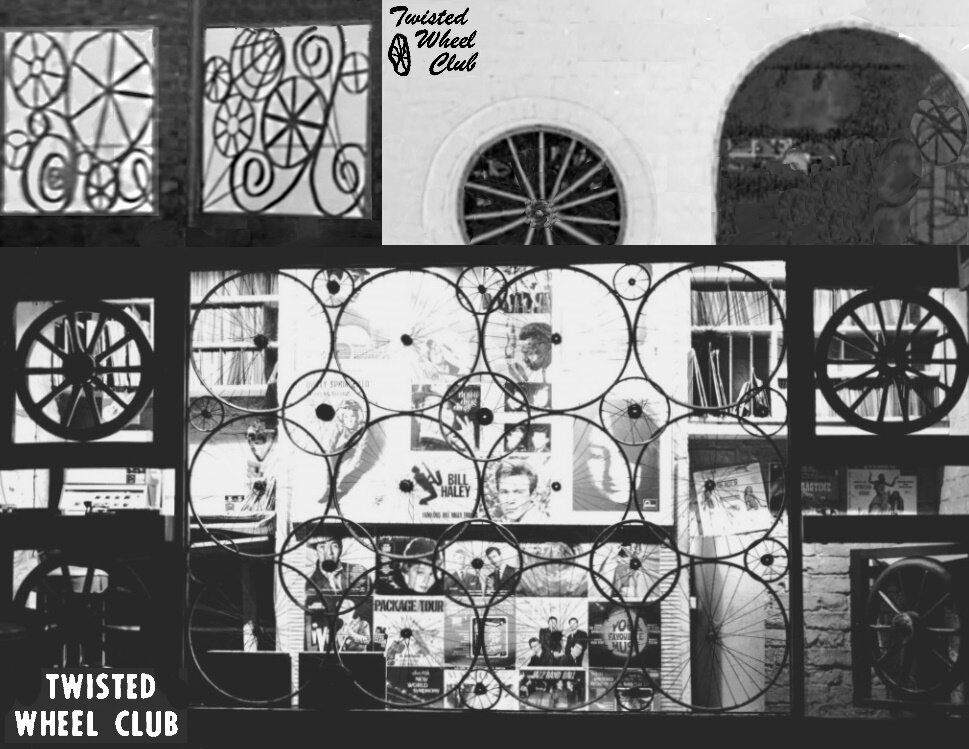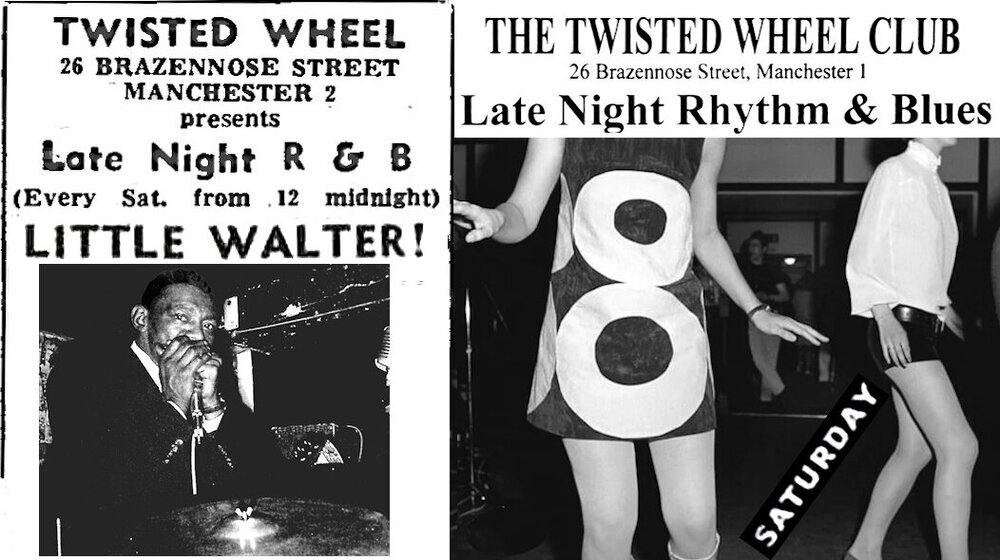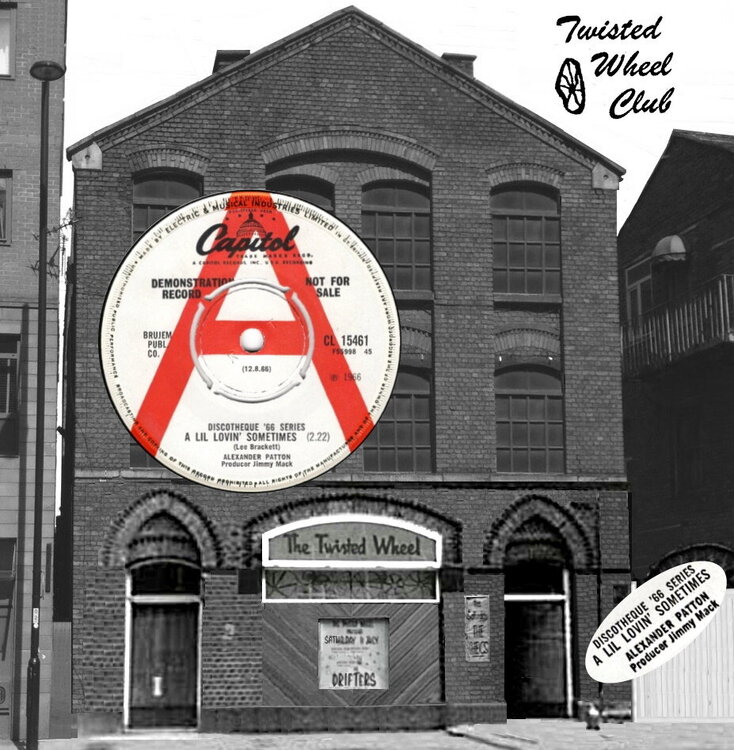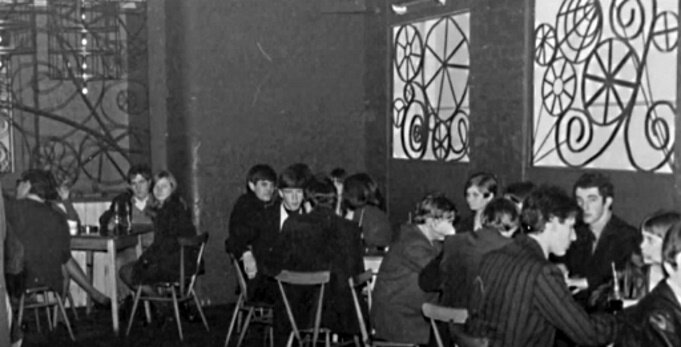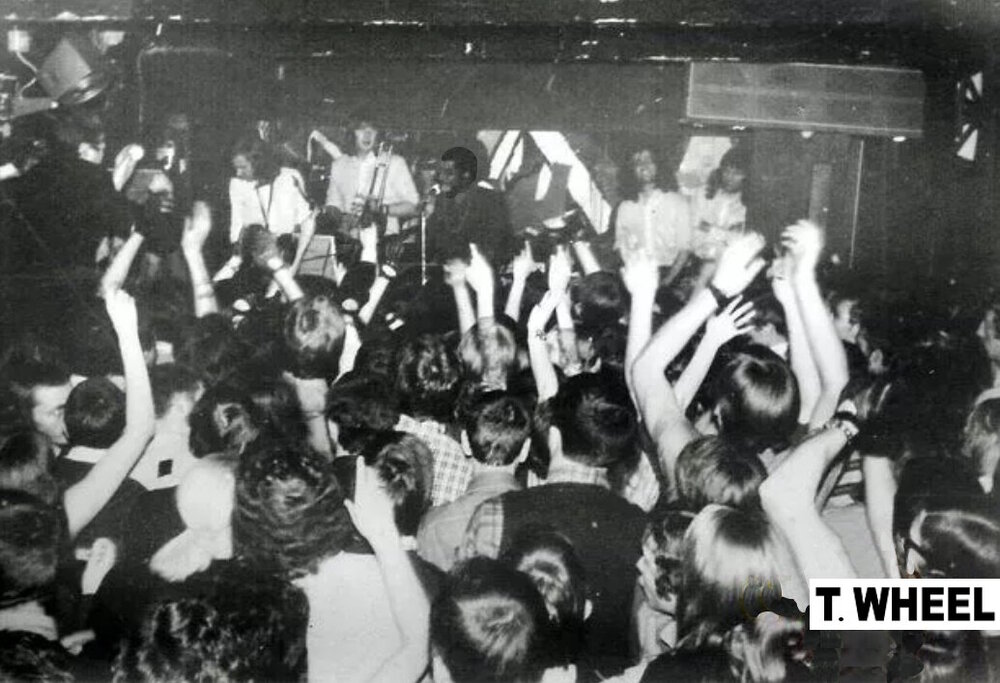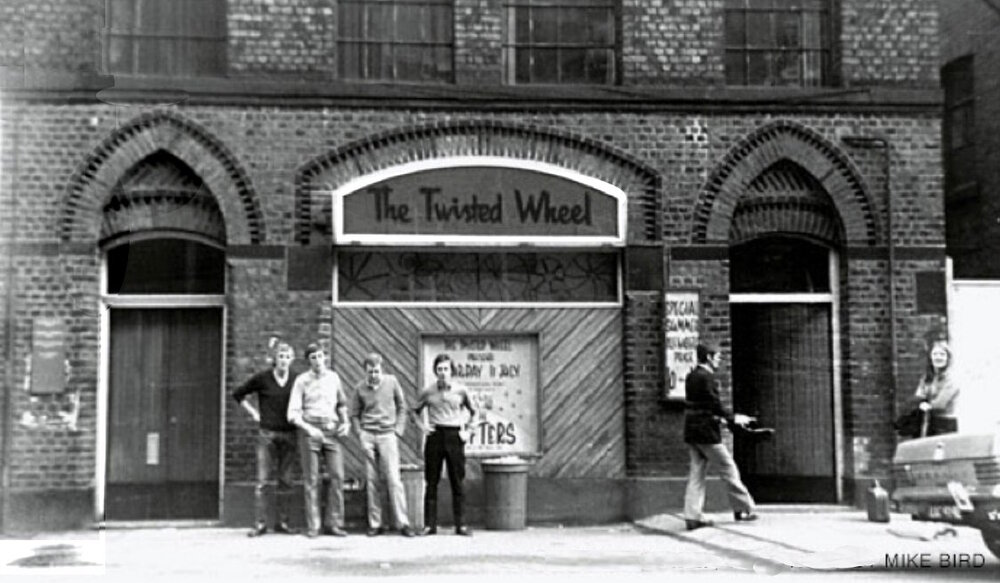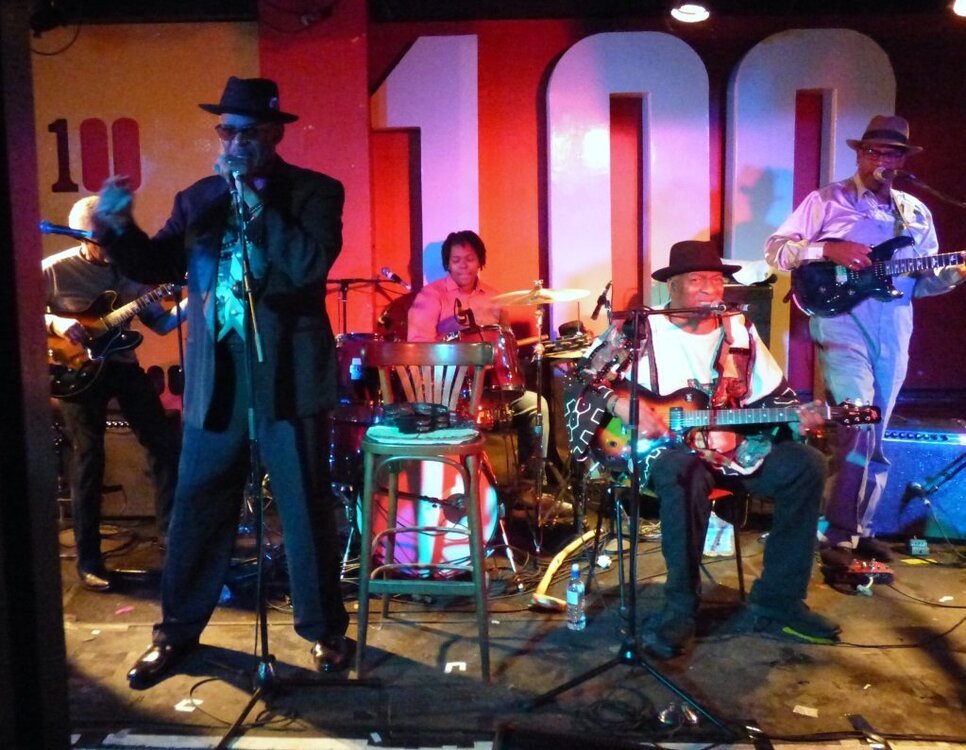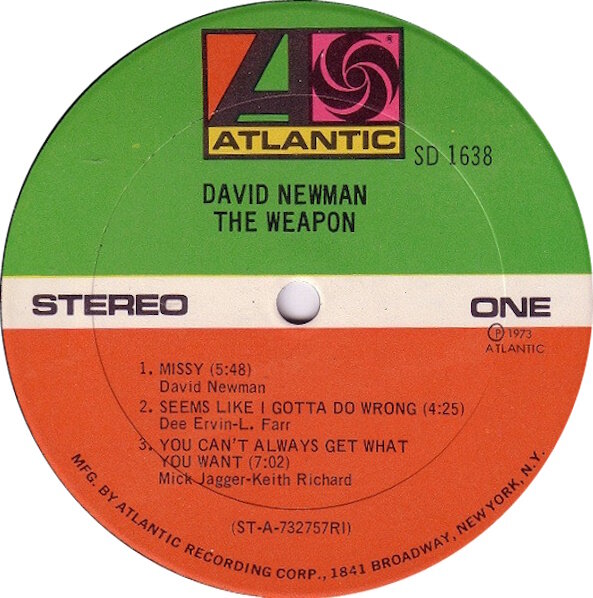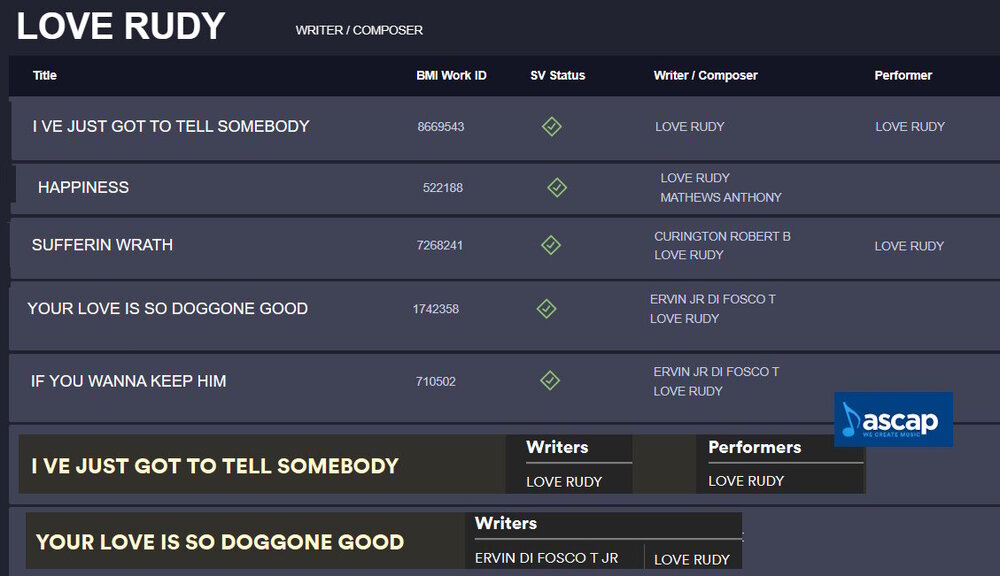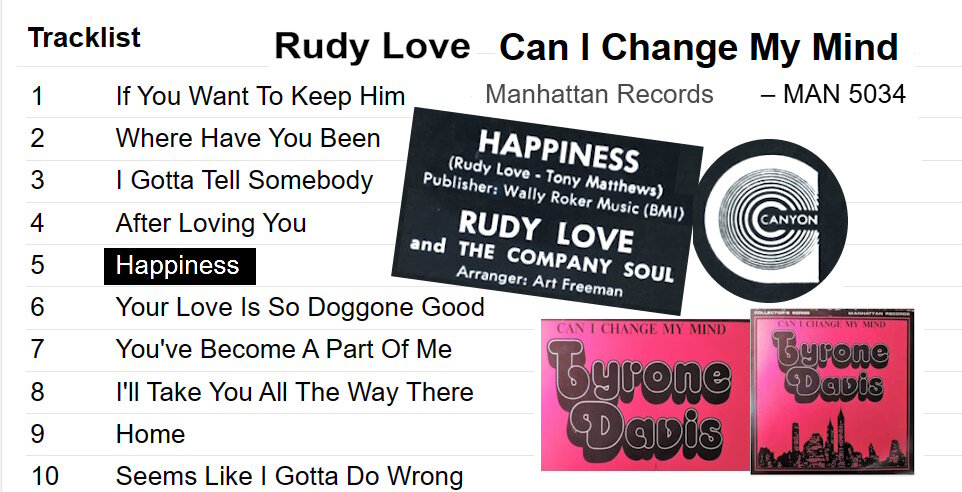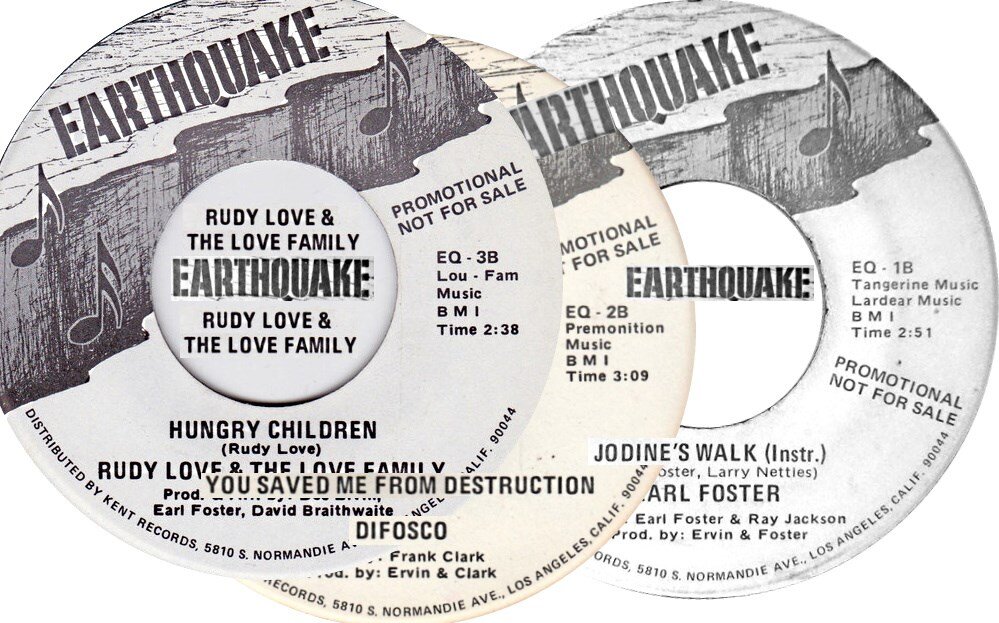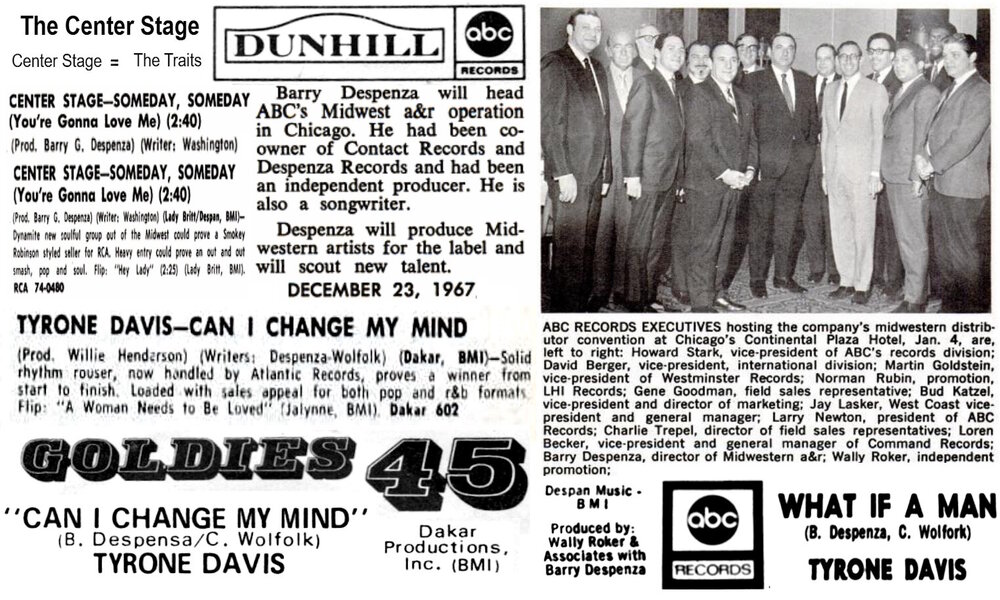Everything posted by Roburt
-
Patti Jo - (Patti Jo + Barry Smith ?) - Merged Topic
The venue on Miami Beach were Barry Smith (& maybe Patti Jo) appeared live ... it was a classy joint where you went to meet couples who wanted to 'swing' ...
-
Who Discovered What ?
If I'd known about Way Out stuff (from Cleveland) back in 1971, I'd have bought a copy of this un ... it seems that it's not a 45 that's around in quantity ... it's by James McCants & his family
-
Who Discovered What ?
There was but you had to be lucky enough to visit at the right time & get access to the 'back stock'. We've had tales on here of Shrine 45's being found there (I was never THAT lucky). But the Oldies team (working in the ex working mans club building) would be seated at tables with boxes of import 45's strewn about in front of them. They'd pick 1 single from each box till they had say 10 or 100 soul 45's & make that up into a package to sell. When there was just oddments from each box left in the middle, those would all be pushed into a big pile & taken away. New boxes would replace those remnants & the whole process would start over. Those 'remnants' would then be dumped in the old chapel for future use. The thing was, new stuff (all nicely boxed up in 10 / 20 single packs) would arrive weekly, so they very rarely got around to sorting out the old remnants. When we'd get into the chapel (a lock-in session) we'd just wade thru the huge piles & find allsorts that Oldies had received up to a few years earlier. Lots of TK label stuff was the more modern but as you found the older piles there'd be Detroit / Chicago / LA label items. Most Motown 45's would be picked out by the Oldies team as soon as they received them (to sell as individual priced 45's) but you could find obscure artist Motown label stuff dumped in the chapel piles. It was very much 'hit or miss' though. ANOTHER decent place to get well priced stuff from (in the early 70's), was B&S / Contempo. Being from Yorkshire, I never actually got to their Hanway St shop but always ordered stuff via B&S ads or from the Contempo club record catalogues ... .
-
Who Discovered What ?
Yes it was OLDIES UNLIMITED. The thing to do was to get the owner to lock you in the Old Chapel for the day, so that you could go thru all the remains of their old 45 stock. It was a pity when the place shut up shop.
-
Who Discovered What ?
I married a Hull lass, so spent many hours in ULLL in the mid to late 60's & thru the 70's. Lots of decent vinyl in 2nd hand shops there. The Uni had a history of booking live US blues acts to play their venues, so some folk would be attracted to Hull Uni by the social scene on campus. So many black music fans ended up as students in the city. If you fell lucky, you could find decent soul / R&B stuff in the 2nd hand shops on Beverly Rd / Princes Ave for many years (students getting skint & selling some of their records off). Also, with ULL being a big port you would find German, Dutch 45's in those same shops sometimes. Picked up a UK copy of Chubby's "You Just Don't Know" and a German Dee Dee Sharpe 45 on one visit in the 60's. I have no idea how the link came about but there was a Record Exchange shop in ULL (on Princess Ave, then Anlaby Rd) that had strong links with (Book &) Record Exchange in west London. I had no idea of the link at the time, but the London shops would send 45's up to the ULL shop on a regular basis. I recall picking up UK CBS / Epic demo 45's from their Anlaby Rd shop around 72/73 and wondering how the shop obtained them. I would start heading down to London to visit those Record & Tape Exchange shops (Shepherds Bush, Camden) from the early 80's -- mind you they were the haunts of the likes of Roger Banks & Paul Temple, so the NS stuff got snapped up quickly.
-
Who Discovered What ?
Back to the mid 60's and how many of us got started on the quest for US soul 45's .... BACK THEN, we knew very little & had few pointers '/ aids to help our search (no tinternet, no discogs, no evilbay). So we had to learn from what was easily available here. I took pointers from mid 60's UK albums that you could buy from your local record store. Jimmy James & Vags 'New Religion' LP (66), the comp LP 'Sing A Song Of Soul' (66) and the Bell Cellar of Soul' series (68 on) introduced me to tracks by the Radiants, Jackie Ross, Ko Ko Taylor, James Phelps, Bobby Moore, Knight Bros, James Carr, Diamond Joe, Barbara Perry, Clifford Curry & Jimmy Radcliffe + stuff like "Ain't No Big Thing", "Ain't Love Good, Ain't Love Proud", "This Heart Of Mine", Hi-Didley Dee Dum Dum (It's A Good Feelin') & "The Entertainer" which I had to try to find out who'd done the original US version. It took a while but I got to know who'd recorded those songs first. So I now had a whole list of names to look out for when looking at the next auction mailing list I received. It would be a while later that I cottoned on to tracks by the likes of the Kittens, the Fuller Brothers, Tony Clarke, etc. My brother was a merchant seaman at the time -- going on routes out of Manchester to Argentina (no use at all) & up the Great Lakes (of great use). I'd ask him to pop into any record shops he'd pass when on-shore in Chicago, Detroit, Cleveland, etc to pick up 45's from their discount boxes. He never did (he had no clue on what labels. artists to buy as he had no idea on soul stuff). Luckily it was easier with albums as you got a clue on many LP covers if it was by a black act. So I did get brought home some great soul LP's out of the cheap racks (Freddie Scott, Spyder Turner & a few more).
-
Drugs and clubs
As stated above, amphetamine tablets were handed out like smarties by GP's in the early to mid 60's. My mum was on them & that's where I got my first ones from. A local Donny lad went off to work in London around 66 and he got a job in a factory that made the tablets. He'd come home on the weekend with pockets full of them. BUT you could trust what you were getting (all properly manufactured stuff) and that's all the niter crowd took (stimulants). Some on dexies for a while, having been told all drugs would kill them, tried other stuff and got addicted to stronger / more dangerous uppers & downers. However most of the niter crowd stuck with just what got them thru the night. Most didn't even do cannabis & many other teenagers smoked that 4 / 5 times a week back then. When the crackdown on GP prescriptions came after the mid 60's, supplies became harder to find. I guess that's why the out-of-hours chemist shop visits started. Dexedrine (dextroamphetamine) is still made & prescribed today. It is given to kids with ADHD and to folk who can't prevent themselves from falling asleep in the daytime. Don't know if this is still the case, but you used to be able to just buy it over the counter in US chemist shops.
-
Drugs and clubs
I had some friends who used to visit chemist's shops out of hours. They ended up with so much stuff, that they worried they'd not have enough decent places to secrete it. It got so bad that they'd take stuff on mid week nights even if they had nowhere to go. They'd end up walking the streets, talking bolix ten to the dozen, all night. While a young body could cope with such occurrences, I doubt an old one would.
-
Cassette Tapes?
Lots of record labels put out pre-recorded cassette & 8 track versions of their top albums in the 70's ... Luther Van Dross on backing vocals on this un ...
-
Who Discovered What ?
I got my dates a bit off above ... F L Moores was already going strong in the old detached house on Leighton Rd, Linslade in early 69. He was advertising his stock of import 45's & LP's but still calling them R&B rather than soul ... though he was just going by MOORE and DISC DELETIONS back then. I worked for the railways & so got free train travel. I'd head down from Donny to Leighton Buzzard on Saturday mornings & spend 3 hours or so going thru what he had on the shelves in the house. This was just before he cottoned on to the value of some of the US soul 45's he had in abundance back then, so he was selling most at 2/6 each. I can recall coming across copies of the Soul Bros 6 "You Better Check Yourself" on US Atlantic and snapping up a copy (coz I knew the group from their UK Atlantic release). His old house was demolished a good while back but it stood next to the one in the pic below & looked quite similar (as I recall). Not sure when the house was actually demolished but he moved his biz (record sales) to a unit above 2 High St, L Buzzard over Xmas 1969 (see 2nd pic) -- I visited both locations. 1st time @ the High St address being in late March 70 as I remember buying a Tammi Terrell 45 from there (bought it as she'd just died). BTW, the guy in Brighton who was also placing sales ads must have had some good stuff too -- can't recall if I wrote off for his list or not (well it was 54 years ago).
-
Who Discovered What ?
Back in 68/69/70, most US soul 45's were either obtained from Soul City Record Shop (who would sell out of an in-demand item in a couple of days), F L Moores in L Buzzard (70 onwards if my memory is working OK still) OR from mailing list auctions. Mailing lists would be sent out about every 2 months by each dealer involved back then. Just lists of artists names, track name & label. As stated above, most folk (certainly me) would scan each list for familiar artist names (the Sapphires, Tony Clarke, etc) or label names (Soul Clock, Original Sound, Audio Arts, Sansu) and take a punt on unknown items. To win a known sound on US 45 you'd have to bid over 10/6d or even 12/6d) but if you bid blind on an item, you could win it for 3/- (15p) if you were lucky. I'd bid on 10 to 12 'blind' on each list I got -- using the label as my guide or a known artist. I even bid on a Mala 45 by Gino Washington with the Altrosonics & Versatones just coz of our Geno W, the label it was on & I was also fascinated by the long artist / group name. Won it & was very happy I had done. Got other 45's that later became sought after items, but it was just by pure luck. Looking back, many other top sounds were totally ignored just coz our knowledge back then was so limited.
-
BACK IN TIME: New York Village Gate
-
BACK IN TIME: New York Village Gate
When your manager wanted to land you a new record deal ... but had to go up to New York to organise it ....
-
Worst Experience ever visiting an All Nighter,
-
Worst Experience ever visiting an All Nighter,
The Hull lads outside the Wheel ... 3rd from left is Graham Bolton (now living in Australia). He went off with a bloke to get some gear ahead of going into the club one night. They rolled him, took his money & beat him up. Not a good night for Graham.
-
Rare 1960s BBC recordings of American R&B Soul acts
Loads of US acts made appearances on BBC radio shows from 1962 thru to the start of Radio 1. Some I know that were live on BBC shows were Sugar Pie DeSanto, backed by Mike Cotton Sound (64 -- Top Gear, Saturday Club + on RSG on TV), Supremes, Ronettes, Dixie Cups -- all on Saturday Club in Oct 64. The BBC also recorded the 1964 US Blues Festival package at their Manchester show (again Oct 64). It was common practise for any US acts (pop, soul, blues) who came here for promotional purposes or to tour to be booked to appear on a BBC radio show back then (before Radio 1, lots of BBC radio consisted of recorded live performances).
-
to mutch time
Back in the 60's / early 70's, lots of soul stuff was considered to be for a 'specialist market' with limited appeal in some Euro countries. So countries, like the UK, that had major pressing capacity would manufacture extra copies which were specifically to service overseas markets. I seem to recall UK 45's being sent to countries such as Belgium & Holland for sale there. I would come across copies when over there -- I worked for British Rail at the time & we got free rail / ferry travel via Harwich to Rotterdam & Zeebrugge, so went a few times a year. I'd drop into record shops over there on each visit, to get copies of locally pressed stuff in pic sleeves.
-
Worst Experience ever visiting an All Nighter,
THIS MAY NOT TRULY FIT INTO THIS THREAD BUT ... Stringfellow ran niters @ the King Mojo in 1966/67 but then it was proposed night clubs / discos that didn't sell alcohol would also need to be licensed by their local councils (early 67). It took time for the legislation to pass into law but the fact it was coming was plain to everyone in the biz. The Mojo was in a residential area & so teenagers turning up close to midnight & milled about upsetting the suspicious locals. Those small folk were out on the streets again early on the Sunday morning, milling about & walking down into the city centre. A few milk bottles disappeared off house doorsteps as some punters needed a drink (don't forget, we're talking about 1967 when the God Squad were still in command & you could do very little on a Sunday as everyone was still supposed to go to church). The police got involved & as pep pills were also an issue, the police took a dim view of allniters & the crowd who attended such events. So, it was evident to the Stringfellows that if they wanted the Mojo to be granted a license to continue under the new law, the niters would have to end. So on Sat 15th April (67) the Mojo held it's last niter session. BUT, Stringers still wanted to be able to book the big visiting US soul acts, so a new strategy had to be brought in. He'd have to pay full whack to book those acts for a normal Frid / Sat / Sun 8 till late session -- he was getting most acts for niter sessions at a reduced rate coz they'd already played & been paid for one gig earlier in the evening). So he needed to come up with a session which he could charge a bit extra admission for but still get his acts at a reduced rate. So he started up Sunday alldayers. Starting around midday & finishing around 11pm. By July he had introduced his new session & booked the likes of the Drifters (most probably the Invitations really) & Garnett Mimms to play live. The out-of-town punters returned to join the locals and the place was buzzing. All had a great time BUT when the session ended around 11pm the out-of-towners had no real way of getting home -- no town to town buses still running & very few night time passenger trains. So loads of those in attendance were stuck. ... FOR A NITER, you just walked into Sheffield town centre, went into the bus stn cafe & hung around an hour or so till the 1st buses / trains of the day could take you home. So no way to get home & a few let Pete S know this fact. So on that first night after the dayer session, a select bunch were locked in the club to sleep on chairs or the floor. They then headed home on the Monday morning. So what could have been a WORST EXPERIENCE for many old regulars was averted by the club's owners.
-
Worst Experience ever visiting an All Nighter,
Never really had any nightmare niter experiences. The Mojo was in a quiet residential area of north Sheffield (one of the main reasons it was shut down by the council), & local rockers never bothered to go up there to harass the mods going to the club. The Nite Owl was in central Leicester but again no real horror stories from my time there. The club was a small cellar club though & (when a top act was on live) could get very full. Being in a cellar it had little alcoves in the walls formed between pillars that supported the higher floors. I can recall seeing a couple having sex in one of those alcoves, oblivious to all the dancers packed in around them. As the club got hot & sweaty when full, I sometimes used to ask the bouncers if I could go outside for a bit (to chat & cool down). They'd let me but obviously thought I was going outside for dubious reasons (to sell pills ?). On my return into the club one night, a bouncer obviously thought I was a dealer & took me aside to tell me he could get his hands on an illegal gun if I wanted to buy one for protection purposes !!! (i was about to celebrate my 18th birthday & was still 'wet behind the ears' so his offer scared me a bit). Lots of mates had horrific tales of being rolled near the Wheel when they'd gone off to buy stuff to help them make it through the night. There were obviously robber types around at those niter sessions but I never came into contact with any (lucky I guess). The worst thing that happened to me on trips to the Wheel were ... 1/ on a winter's night crossing the Pennines in a Hull lads car, we hit black ice & skidded across the road. This spooked the car owner / driver & he immediately decided to head home & we had to bail out & go wherever -- we never made it to the Wheel that night. 2/ arriving too late at the Wheel, you would be refused entry (would this have been after midnight & therefore technically we were trying the pay & enter on a Sunday ?). Anyway, we didn't fancy going home so went to another Manc niter (@ the Majestic). That club was disc only & had few people in , no atmosphere so a bum night all around. Later trips (80's / 90's) were made to venues such as Clifton Halls, a club in Huddersfield, Loughboro, Leicester (Odd Fellows ?), Bradford (Queens Hall), 100 club, Stafford (TotW) and more -- but again , no horror stories.
-
BBC 4 tonight...artists being short changed!
I listened to Boba's interview with the Traits / Centre stage. The guys from the group said that it was Despenza that originally gave them the name the Traits. The guys went off & did other things with another manager after their Contact 45's had gone cold ... one member (Kirk Davis) went out to LA & joined the Major IV. They got back together around 71 and Despenza re-signed them. He recut them on their old hit as Center Stage and put the new 45 out on Dispo. He then got them signed by RCA, but forged their signatures on the RCA contract & went off with their signing bonus cheque (they never did get to see any of that money). They had cut some other tracks under Donny Hathaway's supervision & RCA put those out (2 x 45's). The group then cut stuff directly for RCA but RCA management were a bit unnerved by the whole situation surrounding the group & never released any of their additional tracks. When asked about Despenza, they said he was corrupt but a genius. Boba & the guys also say that their 1st RCA 45 had also been put out by Despenza on Marc (it featured their cover version of "Are You There" but was mis-titled on the Marc 45 version).
-
BBC 4 tonight...artists being short changed!
I would have been as Wally Roker owned both Canyon & Soul Clock Records. Soul Clock was started by Ron Carson but soon taken over by Roker.
-
BBC 4 tonight...artists being short changed!
Just to ensure complete info on Rudy & his UK exploits are on this thread .... His BBC Radioplay Lp + a pic of him performing @ the 100 Club ... ALSO the song "Seems Like I Gotta Do Wrong" is a bit strange. Rudy cut it for Canyon but the versions of the song released at the time had it credited to Dee Ervin (Irwin) & Lynn Farr. It was a hit & other versions have been cut down the years. BUT STRANGELY it isn't a registered song with either BMI or ASCAP. I guess who penned it has always been disputed (& with Rudy Love having passed, I guess he will not be pushing his case anymore).
-
BBC 4 tonight...artists being short changed!
Prompted by a related current thread ... The best way to make money in the music biz in the long term has proved to be to get your name registered as the writer of a song. When a recording of that song was released / is reissued OR a different version is released, the only folk who can be sure they'll get their dues are the songs writers (unless you're a US writer & not registered with a UK publisher -- of honour). Lots of guys knew this from early on, thus all the songs credited to Deadric Malone. A guy who was ripped off in many different ways down the years was RUDY LOVE. He wrote songs for most of his career & recorded for labels, large & small. Until he started releasing his own stuff, he only ever got to enjoy 2 album releases in the Us (both on Calla -- 76 & 78). He also had 2 UK LP releases but neither of them included his Calla stuff. One of his UK releases was credited to Tyrone Davis and were in fact Rudy's cuts for Canyon Records. The 2nd here was released by the BBC and consisted of his tracks cut for Motown South in Muscle Shoals. To make matters even worse, most of the songs that appeared on the Manhattan LP credited to Tyrone Davis had been 'borrowed' by other writers to cut on other acts signed to the Roker / Canyon group of labels. Of course those other writers took the writers credits, so Rudy not only didn't get his 1970 album released but he didn't even get his rightful writers credits. It seems that the guys who ripped him off (who could have included Wally Roker / Dee Irwin / Barry Despenza) were the same bunch who licensed the Manhattan UK LP to President and presumably were rewarded for doing so. Just coz I can; I'm also posting up Rudy's 45 that was released right after Canyon went bust (on the Earthquake label which I seem to recall Rudy telling me had connections to Ray Charles) ... Dee Irwin also had a 45 out on the label.
-
Ivories Wand '67 / 03 BUT Ivorys Despenza '66 > '68 ?
The Traits Contact 45 dating of Nov 67 would seem to fit as it may have been that release that convinced ABC to sign Despenza to work for them in Dec 67. Boba interviewed the Traits / Center Stage on his SITTING IN THE PARK slot & that interview is still up on the net ... so they probably had lots to say about Despenza.
-
Ivories Wand '67 / 03 BUT Ivorys Despenza '66 > '68 ?
Steve G will give you the Wand rundown ... but till he answers ........ Barry Despenza ran his 2 labels in 1966/67. He then got a contract with ABC in Chicago, working with the likes of Wally Roker & others. In 1968 he signed Tyrone Davis to a deal with ABC and cut a number of tracks on him (incl "Can I Change My Mind" -- original version). He must have known his time at ABC was coming to an end as he then took Tyrone Davis to DAKAR, got him a deal there & recut "Can I Change My Mind". The Dakar version became a big hit in Dec 68. I guess Despenza was out in LA with Wally Roker & Monk Higgins in 68/69 as that's when Roker & Higgins were working together for Canyon Records (Roker's label). Soul Clock was another assoc label. They cut the likes of Irma Thomas for Canyon and had also signed Rudy Love to the label a while earlier (late 68?). Rudy had been convinced to sign with Canyon by the teaming of Roker / Higgins / Despenza who were (at the time) celebrating a big hit on Tyrone Davis -- which must have been around Xmas 1968. They convinced Rudy to sign with lots of BS about how they were a 'hit team' & would get him hits -- BUT REALLY they just wanted his songs to use on other of their acts. Roker & Higgins stayed in LA but I guess Despenza headed back to Chicago to mastermind Tyrone Davis's career. He soon re-signed the Traits, renaming them Center Stage, and cutting them for his Dispo label (Donny Hathaway working with him on their tracks). He then went on to get them a deal with RCA. So I'd say the Ivories on Despenza (& the Traits 45) were released ahead of him signing with ABC in Dec 67.

